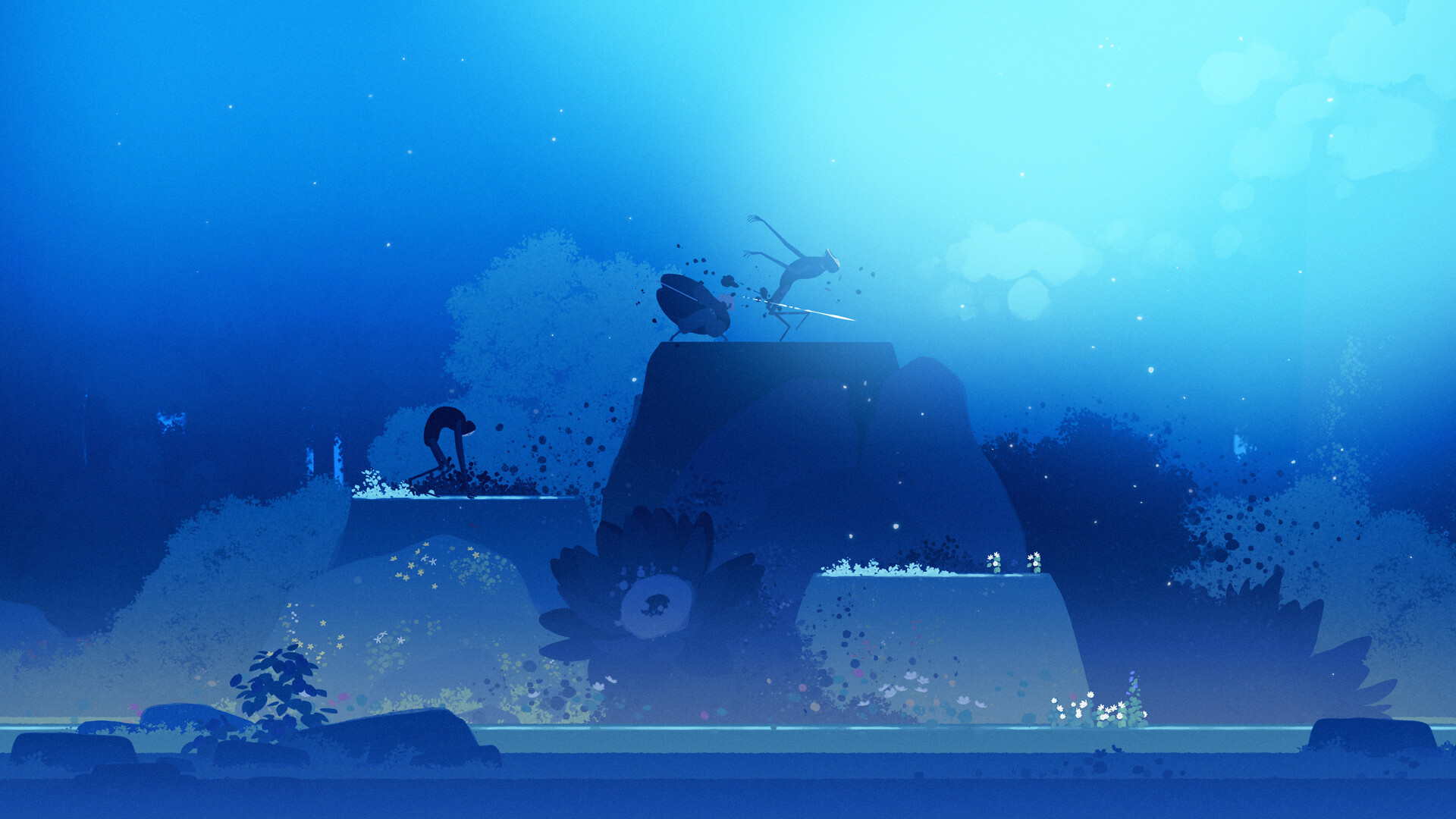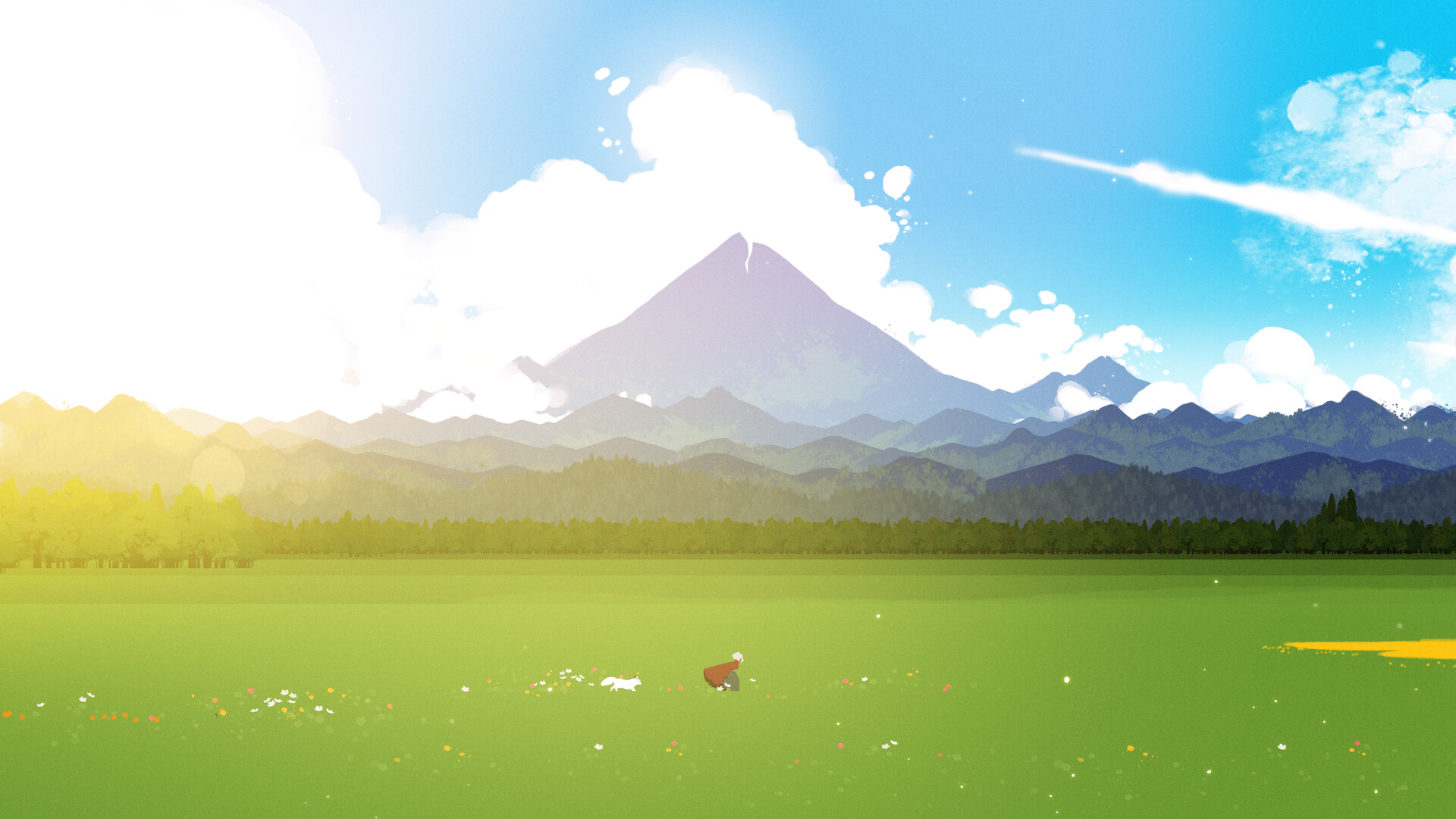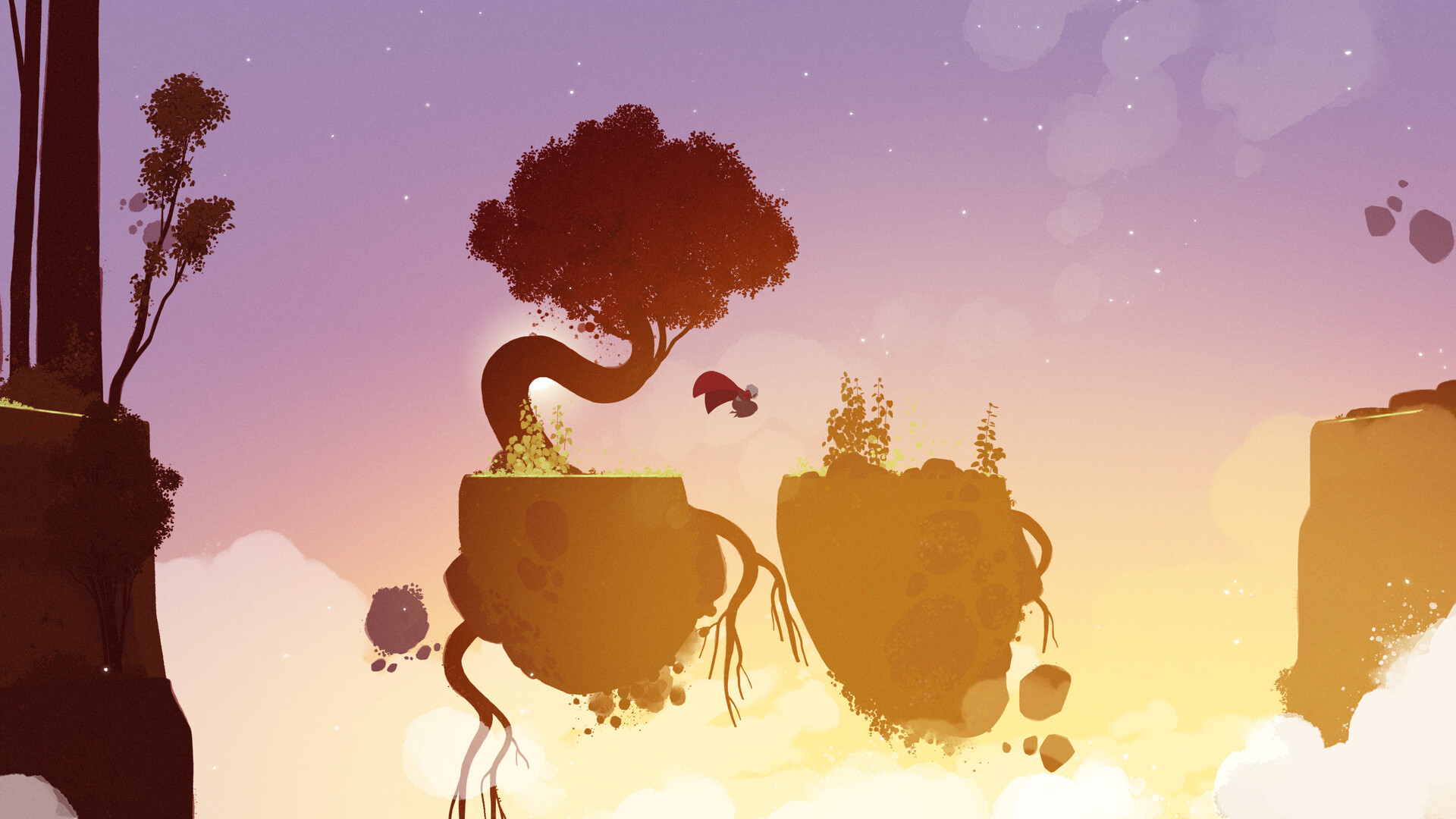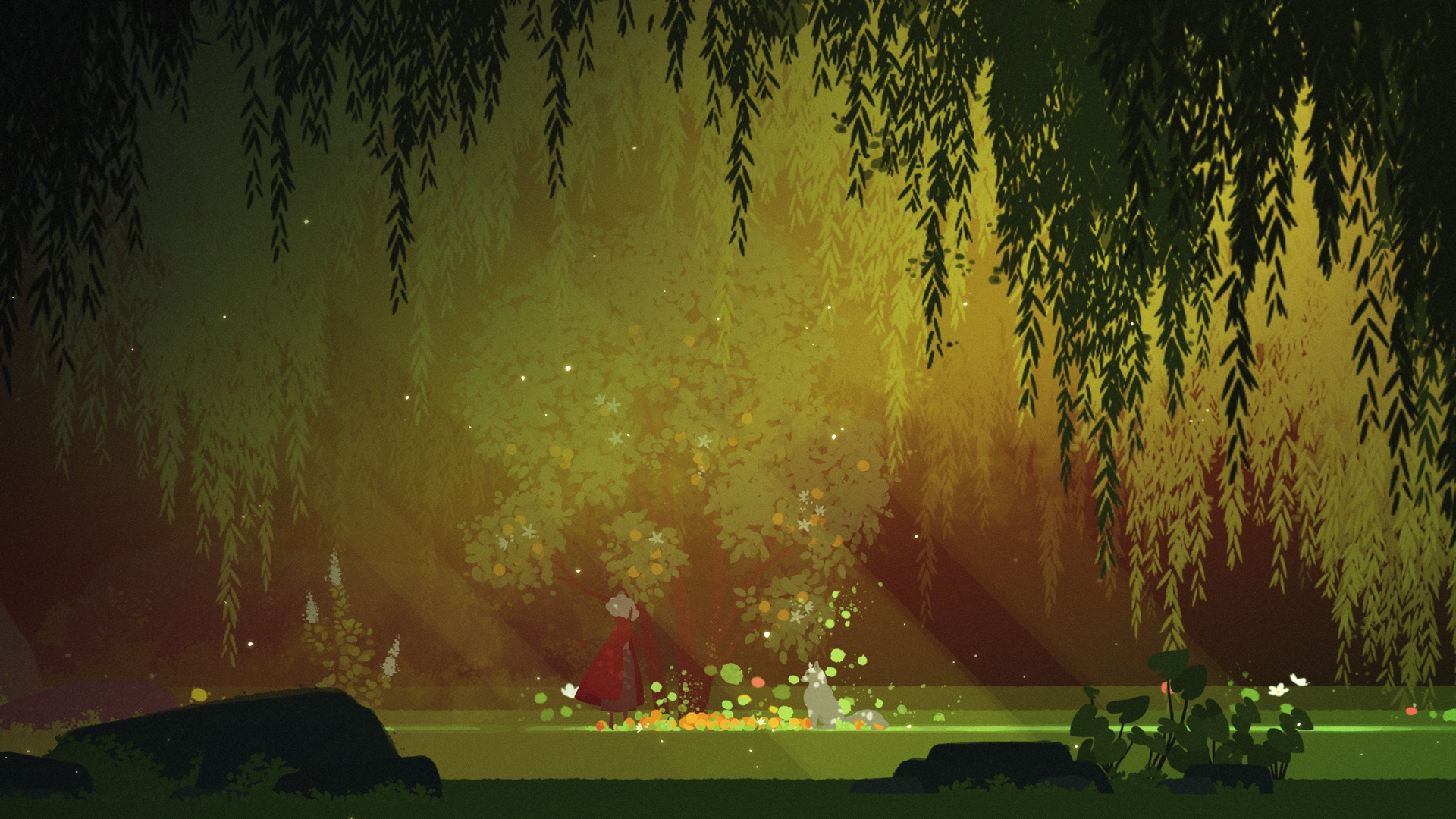With such a brief playtime of 3 hours, it’s hard to really dive into what makes Neva so special as a video game. Densely packed with symbolism and meaning, painted with stunning visuals, and tied together with delicate yet forceful motions in its gameplay, Nomada has once again created something raw with emotional passion. To my delightful surprise, Neva stands tall as its own spectacle, not being overshadowed by the greatness that was Gris, their previous debut title, but linking them together in its exploration of human experience, and this time the world around us too.
Neva tells the journey of a woman named Alba, who forms an unbreakable bond with Neva, a mythical wolf with antlers. Driven by her will to protect Neva after a sudden tragedy, the pair set off to cleanse the world of its rapid decay. This is brought about by masked black creatures that plague the world, devouring its landscape and threatening its wildlife. This game is masterful in how it creates a dichotomy between the luscious forests and open fields bathed in natural light and the all-consuming void creatures that swallow everything with their darkness. Neva is transparent in a lot of its messages but does so with a perfect blend of brutality and beauty.
Central to its plot is our relation to the passage of time, as the game spans across a year, following each season with their own distinct, vivid visuals. Summer is a vibrant forest, where Alba is shaded from the rays of the sun by an abundance of foliage. You can feel the humidity and pollination in the air. By the time the credits rolled, my Nintendo Switch had over 100 screenshots and would have had more, but the cinematic story pulls you along to see what happens next.
In Nomada’s signature style, the protagonist is usually swallowed by the set pieces around her, panning out to take in towering temples to open fields of flowers. As you traverse the world, the game gives you the right amount of time to embrace the world you’re trying to protect.
Time is also effectively represented through Neva herself, as Alba and the player watch her grow from a young pup throughout the game. This growth is also reflected in the wolf as a main gameplay mechanic. Neva begins simply as a passive companion, reflected in her not being able to aid you in combat as she cowers and flees in fright. It’s your mission to protect and aid her as she struggles to jump across ledges and gets easily distracted by the fauna around her. However, as she gets older, she becomes an integral buddy in battles, slowly making the player realize that she may no longer need you.
The protagonist has two areas in her gameplay: jumping and combat. Both incredibly simple and easy to grasp, but with their own challenge to keep it refreshing. Alba’s jump from each platform is similar to Gris’s; it’s delicate and floaty, imitating her being one with the air and nature around her. Jumping is often paired with the puzzles of the game, posing a question of where you aim to jump. This can be in the form of jumping through portals or bouncing off walls. However, to my dismay, I don’t think Neva’s jumping puzzles are as innovative as its predecessor. They’re relatively basic, and they never felt like meaningful input, but they still are fun enough to engage with.
However, if you’re seeking a challenge, Neva features hidden flowers in each level that require the player to make intricate jumps, timing, and precise positioning. This was a welcome addition, as I know players can never resist a collectible, especially one that’s in sight but just out of reach. And if you collect every flower in a level, Nomada leaves a little surprise for you!
New to Nomada is a combat system, again relatively simple but quickly engaging and rewarding for the player to use. You use your sword to strike enemies and to strike downwards to reveal new paths, feeling like a needle with how sharp her movements are when thrusting her sword. To pair with this, Alba can quickly slice enemies, then dodge roll through them to avoid damage. She only possesses three lives, represented by three sectioned flowers in the bottom screen; you lose one with every hit, and you restore them by striking enemies—with each strike restoring a fragment of the flower.
Enemies and each level’s respective boss are equally distinct and challenging, as they often interact with the environment around you. However, the player can often overcome these challenges by studying the boss’s attack pattern, creating a rewarding experience that never frustrates the player. They don’t just work mechanically but offer a cinematic spectacle in how urgent and brutal both parties are to one another.
I think its story and gameplay work harmoniously together to convey the messages of the game. The developers state that Neva was conceived during a period of tranquility, reflecting on COVID, social unrest, and climate change. These factors can embody how cruel and consuming we and the world can be to one another. But Neva subsides this bleakness with an ever-present hope for change and to protect and build a world for those who come after us. Neva is by no means overtly political and never preaches in its themes, but it excels in being an expressive piece of art that projects the voices of Nomada Studios.

























